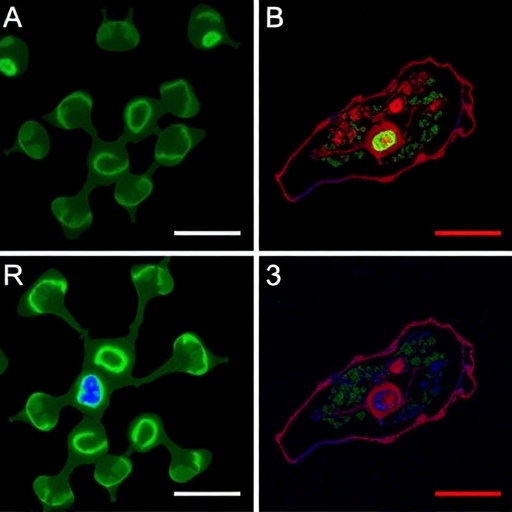In a groundbreaking clinical advancement, researchers from Newcastle University in collaboration with Newcastle Hospitals have demonstrated that early withdrawal of the drug eculizumab in patients with atypical haemolytic uraemic syndrome (aHUS), a rare and severe kidney disorder, is both safe and effective. This revelation challenges previous standards that recommended lifelong therapy with this costly and high-risk medication, opening new horizons for patient care and healthcare economics.
Atypical haemolytic uraemic syndrome is a life-threatening condition characterized by uncontrolled activation of the complement system—a critical component of the innate immune response—leading to systemic thrombotic microangiopathy. This pathological activation results in widespread endothelial damage, hemolysis, and multi-organ failure, with kidney involvement being particularly prominent. Historically, the prognosis for aHUS was grim, often culminating in irreversible kidney failure and the need for dialysis or transplantation.
The therapeutic landscape shifted significantly with the introduction of eculizumab, a monoclonal antibody that acts as a terminal complement inhibitor by binding to complement protein C5. By preventing the formation of the membrane attack complex (MAC), eculizumab effectively halts the destructive cascade responsible for endothelial injury. Since its approval in 2015 by the NHS based on earlier pivotal trials led partly by Newcastle teams, eculizumab has transformed the lives of patients diagnosed with aHUS. However, the initially recommended indefinite administration posed challenges, including heightened infection risks and soaring treatment costs.
.adsslot_92e8dkhLcV{ width:728px !important; height:90px !important; }
@media (max-width:1199px) { .adsslot_92e8dkhLcV{ width:468px !important; height:60px !important; } }
@media (max-width:767px) { .adsslot_92e8dkhLcV{ width:320px !important; height:50px !important; } }
ADVERTISEMENT
Previously, continuous treatment with eculizumab was advised due to fears of disease relapse upon cessation. However, maintaining patients on lifelong complement blockade comes with substantial risks. Chief among these is a dramatically increased susceptibility—up to 1,000 times higher—to meningococcal sepsis, a serious and potentially fatal infection. The necessity for constant intravenous infusions every two weeks also imposes a significant quality-of-life burden, complicating daily routines and activities for patients.
The Newcastle-led study, published in The Lancet Regional Health – Europe, meticulously evaluated the safety and efficacy of withdrawing eculizumab after a minimum of six months of treatment. The clinical trial was designed as a multicenter, open-label, prospective, single-arm investigation encompassing 28 patients ranging from 2 to 59 years old, recruited from England and Scotland. Every patient discontinued eculizumab under stringent medical supervision and was closely monitored for signs of disease relapse.
Remarkably, only four patients experienced a resurgence of aHUS symptoms post-withdrawal, while the remaining 24 maintained remission without pharmacological intervention. This indicates a significantly higher rate of sustained remission off therapy than previously assumed. The study protocol featured vigilant and iterative surveillance with the option to promptly reinstitute treatment should relapse indicators emerge. This safety mechanism underscores the potential for personalized, risk-adapted therapeutic regimens tailored to individual patient profiles.
From a health economics perspective, the withdrawal of eculizumab portends enormous cost savings for healthcare systems, particularly the NHS. The study projects a remarkable £4.2 million savings per individual patient over their lifetime. Aggregated across the population of aHUS patients, this could translate into over £110 million saved within five years. Such fiscal efficiency emphasizes the importance of integrating precision medicine approaches and adaptive treatment strategies within public health frameworks.
Beyond the study’s direct findings, Newcastle University’s team is committed to advancing understanding of aHUS treatment by continuously gathering longitudinal data. Future research will focus on elucidating biomarkers predictive of relapse, the feasibility of additional withdrawal attempts following relapse recovery, and tailoring immunological interventions to mitigate complement dysregulation without exposing patients to undue risk.
Patients like Louise Percival exemplify the transformative potential of this research. Diagnosed with aHUS in her mid-twenties, Percival endured burdensome side effects including debilitating migraines, alopecia, and respiratory difficulties exacerbated by her biweekly eculizumab infusions. Her participation in the withdrawal trial enabled her to cease treatment without relapse, significantly enhancing her physical well-being and daily functioning. Such patient narratives underscore the tangible benefits stemming from this scientific progress.
This paradigm shift in the management of aHUS exemplifies the fruitful intersection of rigorous clinical investigation and patient-centered care. It reflects the importance of embedding research within healthcare systems to foster evidence-based policy changes that optimize outcomes while curbing unnecessary expenditures. The Newcastle study stands as a stellar example of how re-examination of established therapeutic dogmas can yield more nuanced and patient-friendly treatment algorithms.
Subject of Research: People
Article Title: Eculizumab withdrawal and monitoring in atypical haemolytic uraemic syndrome (SETS aHUS): a multicentre, open label, prospective, single arm trial
News Publication Date: 7-Aug-2025
Web References:
10.1016/j.lanepe.2025.101392
References:
Bryant A et al. Eculizumab withdrawal and monitoring in atypical haemolytic uraemic syndrome (SETS aHUS): a multicentre, open label, prospective, single arm trial. The Lancet Regional Health – Europe. DOI: 10.1016/j.lanepe.2025.101392
Keywords: Clinical medicine, aHUS, eculizumab, complement inhibition, kidney disease, immunotherapy, rare diseases
Tags: atypical haemolytic uraemic syndrome researchcomplement system activationeculizumab drug effectivenesshealthcare economics impactirreversible kidney failure preventionkidney treatment discontinuationmonoclonal antibody therapy benefitsNewcastle University clinical studyNHS treatment standardspatient care advancementssevere kidney disorder managementtherapeutic landscape evolution





